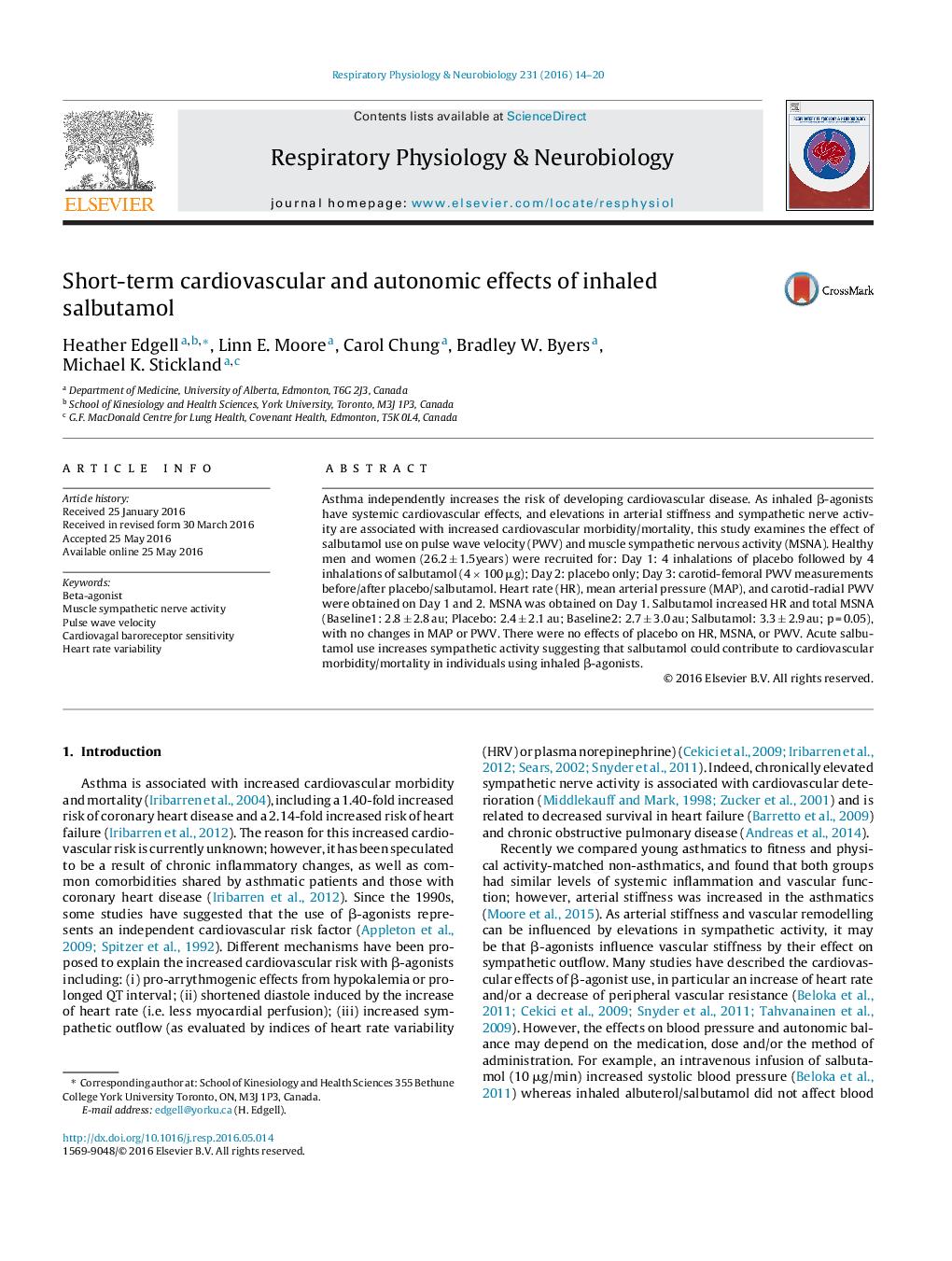| Article ID | Journal | Published Year | Pages | File Type |
|---|---|---|---|---|
| 2846635 | Respiratory Physiology & Neurobiology | 2016 | 7 Pages |
•Asthma increases the risk of developing cardiovascular disease.•Higher sympathetic nerve activity also increases the risk of cardiovascular disease.•We found that muscle sympathetic nerve activity increased with acute β-agonist use.•We suggest that β-agonist use may increase cardiovascular risk.
Asthma independently increases the risk of developing cardiovascular disease. As inhaled β-agonists have systemic cardiovascular effects, and elevations in arterial stiffness and sympathetic nerve activity are associated with increased cardiovascular morbidity/mortality, this study examines the effect of salbutamol use on pulse wave velocity (PWV) and muscle sympathetic nervous activity (MSNA). Healthy men and women (26.2 ± 1.5years) were recruited for: Day 1: 4 inhalations of placebo followed by 4 inhalations of salbutamol (4 × 100 μg); Day 2: placebo only; Day 3: carotid-femoral PWV measurements before/after placebo/salbutamol. Heart rate (HR), mean arterial pressure (MAP), and carotid-radial PWV were obtained on Day 1 and 2. MSNA was obtained on Day 1. Salbutamol increased HR and total MSNA (Baseline1: 2.8 ± 2.8 au; Placebo: 2.4 ± 2.1 au; Baseline2: 2.7 ± 3.0 au; Salbutamol: 3.3 ± 2.9 au; p = 0.05), with no changes in MAP or PWV. There were no effects of placebo on HR, MSNA, or PWV. Acute salbutamol use increases sympathetic activity suggesting that salbutamol could contribute to cardiovascular morbidity/mortality in individuals using inhaled β-agonists.
